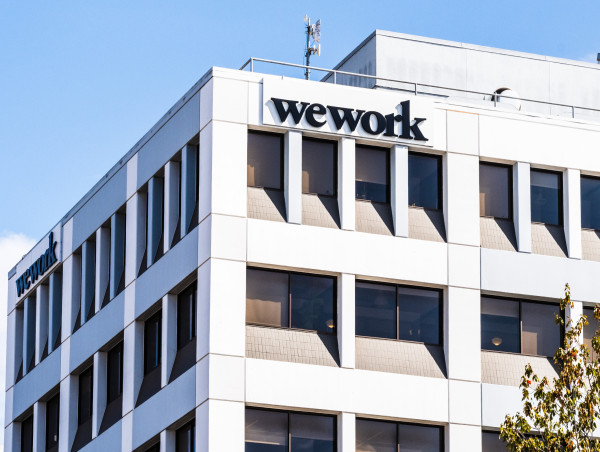The last decade was a boom period for technology startups, with some analysts comparing it with the dot com bubble. Buoyed by low-interest rates, venture capital firms invested in thousands of companies. While some firms like Airbnb and Uber have done modestly well as public companies, many of them have not. Here are some of the top companies that have moved from unicorns to penny stocks.
WeWork
WeWork (NASDAQ:WE) exemplified the excesses of the recent tech boom. The company raised billions of dollars from Softbank, giving it a peak valuation of over $45 billion. It was expanding fast and it overtook IWG, the parent of Regus, to become the biggest player in the industry.
WeWork stock price has now crashed by 99% and its market cap has moved to just $134 million. It is a cash incinerator that is losing millions of dollars every day. At the same time, it has lease obligations worth billions. And recently, it delivered a going concern notice and started to renegotiate its leases.
I believe that WeWork’s chances of survival are extremely limited because of its high liabilities, slow user growth, and its thin balance sheet. It has become a penny stock, with its shares trading at $2.
Watch here: https://www.youtube.com/embed/X2LwIiKhczo?start=2&feature=oembedBuzzFeed
BuzzFeed (NASDAQ:BZFD) was another high-flying tech startup at its peak. The company was known for creating viral content and listicles. As a result, many analysts and venture capital firms considered it to be the future of media.
Buzzfeed stock price has crashed by 96% from its peak while its market cap has dropped to just $43 million. The company has continued to bleed cash while its growth has slowed. BuzzFeed is also losing its relevance among many young people, who are spending most of their time in TikTok. Vice Media, a competitor, filed for bankruptcy in May.
The RealReal
The RealReal (NASDAQ:REAL) is a company that aims to disrupt the high-end part of the fashion industry. The company provides a two-sided marketplace where people can buy and sell their clothes and jewelry.
The RealReal’s business has been doing relatively well as its total revenue jumped from over $213 million in 2018 to over $603 million in 2022. However, this growth has come at a big loss as the total net loss has jumped from $75 million to over $209 million.
The RealReal stock price has crashed by 94% and was trading at $1.55. Its market cap has dropped to just $158 million. It has underperformed as investors remain concerned about its growth potential and its lack of profits.
Allbirds
Allbirds (NASDAQ:BIRD) stock price has dropped by more than 99% since going public. This crash brought its total market cap to just $143 million. At its peak, the company was valued at over $1 billion.
Allbirds has had a difficult time as a public company. While its sales rose from $193 million in 2019 to $297 million in 2022, its losses have soared to over $114 million. Allbirds has suffered from quality and strategic issues. For example, it expanded to other categories like apparel but has been forced to abandon it. It is also seeing weak demand and high cash burn.
Oatly
Oatly (NASDAQ:OTLY) stock price has collapsed by over 97% after it went public. After peaking at $28.4, the shares have plunged to $0.55. The company, which is backed by Oprah Winfrey and Natalie Portman, raised $1.4 billion in its IPO in 2021. Most of these funds are now gone, as its total cash and short-term investments stand at $340 million.
Oatly has fallen out of favor among investors and consumers. There are signs that demand for oat milk and other products like artificial meat is fading. Competition in the industry has also jumped sharply in the past few years.
Watch here: https://www.youtube.com/embed/kVp0n9Nnt2Y?feature=oembedMost of these former unicorns will likely struggle in a high interest-rate environment. Some, like WeWork could go bankrupt because of the difficulties in financing. Others, especially The RealReal, could return to growth and bounce back in the long term.
The post 5 tech companies that moved from unicorns to penny stocks appeared first on Invezz





